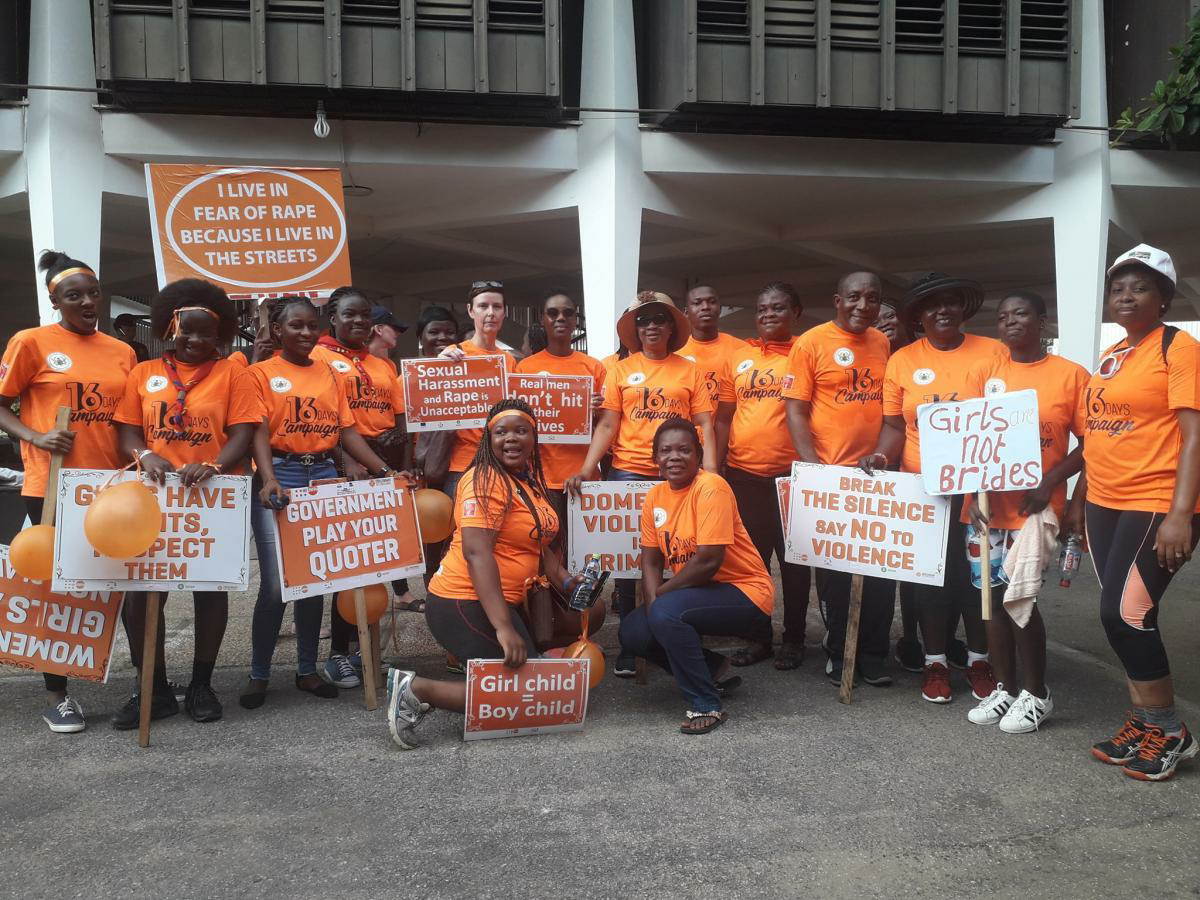The National Women’s Leader of Ohaneze Ndigbo, Hon. Chief Dame Rita Daniels Chukwuji (Ochiudo), on Thursday in Abuja, called on Nigerian women, Non-governmental Organisations (NGOs), private sectors and other stakeholders to join her in driving an all -inclusive campaign against Gender Based Violence (GBV) which commences on November 25 to climax on December 10, 2024.
The 16 Days of Activism is a campaign supported by the United Nations that calls for action to end violence against women and girls and themed: “Towards Beijing +30: UNiTE to End Violence Against Women and Girls”.
Speaking with journalist during the campaign, Hon. Chief Rita Daniels Chukwuji disclosed that
Gender-Based Violence (GBV) remains a hydra-headed monster affecting millions of women, children and marginalised communities in Nigeria”
According to her, women are dieing everyday in the cause of domestic violence.
She said Gender-based violence is a global public health, gender equality and human rights priority. It remains a systemic crisis, affecting 1 in 3 women worldwide. Risks increase during humanitarian emergencies or when women face greater curtailments of their essential rights, such as access to education, healthcare or freedom of movement.
While violence affects women everywhere, women and girls in certain groups - such as those living with disability, adolescent girls and older women - often face even greater difficulty to have their voices heard and to access support.
Too often people respond to violence by blaming or shaming the victim – for instance, for what they wore or what they did, or because they belong to a particular group, or people hesitate to offer support because it takes place in ‘private’ or among people we know.
She said, We must change the story, challenge misogyny and violence, and make sure women are heard. Women and girls everywhere should be able to access the help they need, when they need it, so we can end violence once and for all.
Health workers are often the first, sometimes only, point of contact for women experiencing violence. They can provide compassionate care for survivors by offering first-line support, medical examination and treatment, and referrals to other essential service s. This requires investing in training and resources to ensure appropriate care.
She therefore called on government at all levels, civil society organizations and the private sector to accelerate progress towards ending violence against women and girls.
Source: Lucy Ezeliora.




